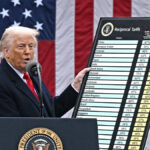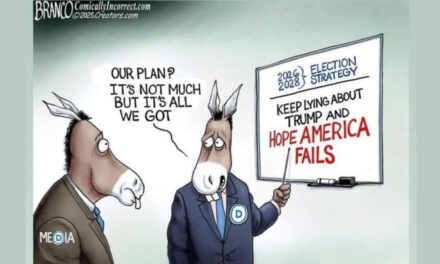
The Devaluation of Chinese Currency: Innocent Strategy or Herald of Worldwide Disaster?
The Chinese yuan has fallen 2.9% in just three days. Economists fear that the sudden decrease will incite a currency war.
Some believe the yuan will continue to fall in value. This will give Chinese merchants an advantage over foreign competitors, the effect being that Chinese imports rise and exports from other countries decrease, a substantial economic impact in favor of China. This could potentially start a currency war if other countries respond by lowering their exchange rates.
China is desperately trying to quell these fears. According to deputy central bank governor Zhang Xiaohui, there is “no basis for persistent and substantial devaluation.”
The sudden change is surprising considering the tight leash China typically keeps on its currency. According to Beijing, the official reason for letting the drop occur is to make the yuan more responsive to market forces. A weaker currency also gives Chinese exports a competitive boost.
That sounds reasonable, considering the well-known fact that China’s economy has been slowing down over the past sevearl years. However, many economists don’t believe that 2.9% is enough to benefit Chinese exports.
Albert Edwards, economist with Societe Generale (a French bank), senses doom on the horizon: “Make no mistake, this is the start of something big, something ugly.” Edwards believes a continuing decrease could lead to a “tidal wave of deflation” and even an “outright recession.”
The Guardian suspects that China’s decision may bring a new wave of price weakness to America. Inexpensive products are a good thing when the demand is high, but economists fear that deflation will prompt consumers and businesses to postpone spending in the hope that prices will drop even further.
“We’re all going to feel it,” says Erik Britton of City consultancy Fathom, “we’ll feel it through commodities; we’ll feel it through manufactured goods exports, not just from China but from everywhere that has to compete with it; and we’ll feel it through wages.”
American lawmakers consider China’s decision to be damaging for U.S. workers and businesses. That decision has reawakened an issue that was once a big source of tension between the USA and China.
“When China doesn’t play by the rules it costs Pennsylvania jobs,” says Senator Bob Casey.
According to Senator Chuck Schumer, “China has rigged the rules and played games with its currency.”
Others, like Nicholas Lardy, believe that it is ridiculous to assume China devalued the yuan in order to stoke economical growth. Lardy works at the Peterson Institute as an expert on Chinese economy. He thinks the yuan would have to drop 10% or more to affect economic growth.
Lardy suggests that China’s decision was based on the desire to enter the group of currencies considered when setting the value of Special Drawing Rights, the International Monetary Fund in-house currency. Current players are the euro, dollar, British pound, and yen.
Lardy commends the U.S. treasury’s response to the incident as “modestly positive” as they wait to see how things play out before making a judgment. Even so, he believes congressional criticism to be inescapable and assumes that “some will continue to rail at China whatever happens. That’s been the history.”

























At last Larry has been heard from with "Leave a Reply". We know Larry is the author of the Reply…
Trump is probably the most fit President we have had in the White House for a President at any age.…
Cognitive and physical health. OMG. Elections have consequences. It’s proven that Trump is smarter than Frank Dunger. Any in agreement?…
He said, she said so who are we going to believe. Larry you cast a very dim light on the…
You asswipes aren’t good enough to give Trump a rim job. But speaking of Trump, he passed his physical examination…